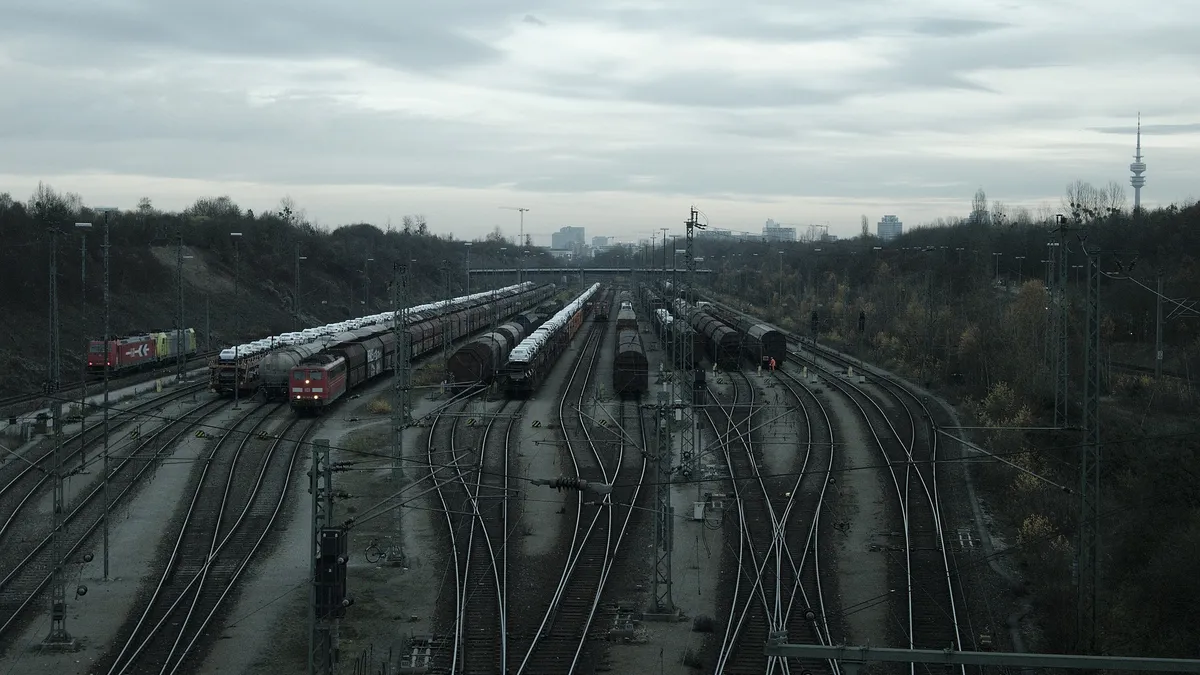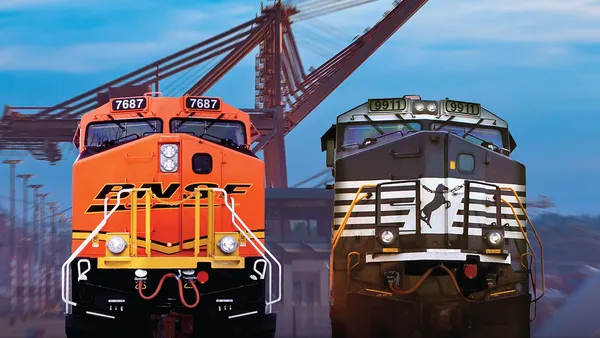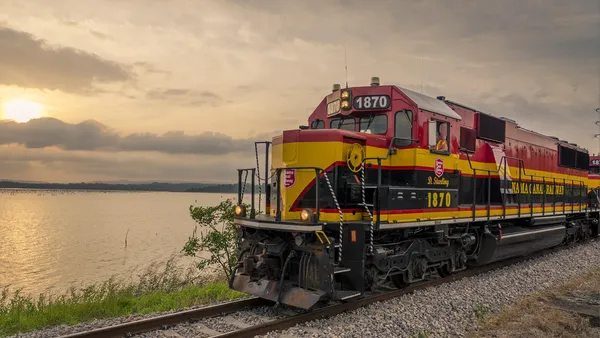A downpour of lawsuits hit the four largest Class I railroads on Sept. 30. In total, 24 lawsuits were filed against BNSF, CSX, Norfolk Southern and Union Pacific. The suits came from shippers who alleged wrongdoing in the carriers' use of fees.
And while the filings are new, the complaints are not. The fight has been unfolding for years, and this is just the latest volley.
History of conspiracy
In 2007, multiple shippers sued these same four railroads, along with the Association of American Railroads and Kansas City Southern in an antitrust case. The shippers claimed the rail carriers "conspired to fix, raise, maintain, or stabilize prices of unregulated rail freight ... by imposing agreed upon Rail Fuel Surcharges," reads the original complaint filed by Dakota Granite Company on behalf of itself and others.
The shippers claimed the rail carriers worked in concert to set the fees at inflated levels, resulting in higher freight costs for shippers.
"In 2003, the four largest United States-based Class I railroads engaged in an extraordinary series of meetings, phone calls, and email communications through which they embarked on a conspiracy — under the guise of a fuel cost recovery program — to apply and enforce rail fuel surcharges across their customers in order to generate profits," reads the beginning of the most recent lawsuits filed individually last week.
The April 2003 meeting took place at the Greenbrier Resort in West Virginia. The complaints also outline other meetings over golf and at gatherings of industry associations.
The shippers claimed the railroads agreed to set fees as a percentage of the base rail freight rate. Between 2003 and 2004, BNSF, CSX, Norfolk Southern and Union Pacific switched to using similar indices to set their fuel rates, which resulted in "uniformity" in the monthly surcharge percentages charged to customers, instead of fuel surcharges based on the amount of fuel used, the original complaint reads.
Instead of undercutting the other carriers' fuel fees to attract shippers, which the plaintiffs say would have been in the carriers' best economic interest, they claim the carriers continued to set fees in tandem, "pocketing billions of dollars in profits as a result," court documents read.
Classwide injury?
The plaintiffs in the original 2007 case were moving to form a class action suit made up of any shippers affected by the fees that wanted to join. This class was approved in 2012. But a U.S. Supreme Court decision that same year changed the standard for antitrust lawsuits.
The plaintiffs' hopes of forming a class were dashed this past August in the U.S. Court of Appeals, when a three-judge panel affirmed a lower court's decision to deny the class certification, saying the shippers were not able to show class-wide injury resulting from the alleged price-fixing.
Unable to filed collectively, the shippers faced a Sept. 30, 2019 deadline to file their lawsuits individually. When this deadline arrived, so did the flurry of lawsuits filed last week against the railroads.
"BNSF is reviewing the filings," a spokesperson for the railroad told Supply Chain Dive in an email. "These allegations are not new and we have strongly denied these accusations for well over a decade."
A spokesperson for CSX said the carrier does not comment on pending litigation. Neither Union Pacific nor Norfolk Southern responded to a request to comment on the multiple lawsuits.
The full list of shippers suing the railroads
- Kia Motor America
- Hyundai Motor America
- Phillips 66 Company
- Lafarge North America
- Conagra Brands
- PCS Sales
- Talen Energy Supply
- Old World Industries
- Alcoa Corporation
- Motiva Enterprises
- Northdown Industries
- IPSCO Tubulars
- Grain Craft
- Axiall Corporation
- The Amalgamated Sugar Company
- American Rock Salt Company
- Coffeyville Resources Nitrogen Fertilizers
- Campbell Soup Company
- Eastman Chemical Company
- Dominion Energy
- Mercedes-Benz USA
- Duke Energy
- CertainTeed Corporation
- Nova Chemicals
A 2010 report from the Senate Commerce Committee on the financial health of the Class I railroads concluded recent financial results proved regulatory changes in the rail environment achieved the "goal of restoring financial stability to the U.S. rail system." The report includes a chart that shows the Class I railroads' profit margins grew from 7% in 2000 to nearly 13% in 2009.
But shippers claim the margin growth is in part thanks to the claimed conspiracy involving fuel fee price-fixing. The complaints include quotes from the carriers dated to 2006 that cite the fuel surcharge program for improved revenues.
The multiple lawsuits filed last week are calling for a jury trial. The next step will be for the defendants to respond to the allegations, a spokesperson for the plaintiffs told Supply Chain Dive.














